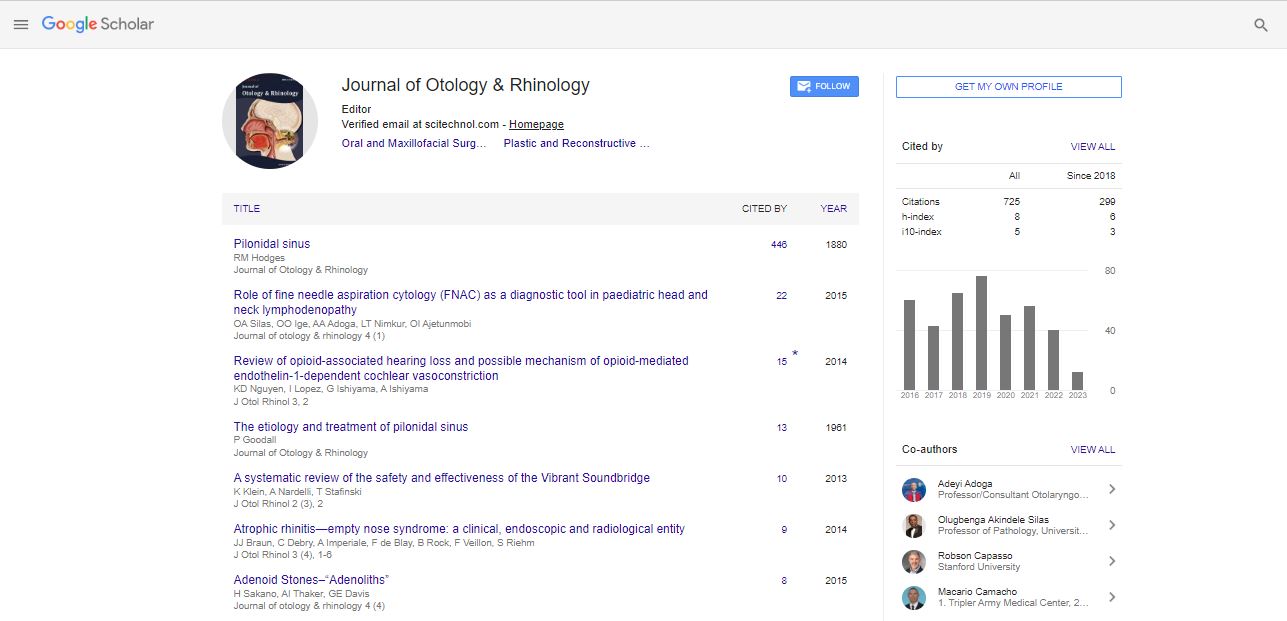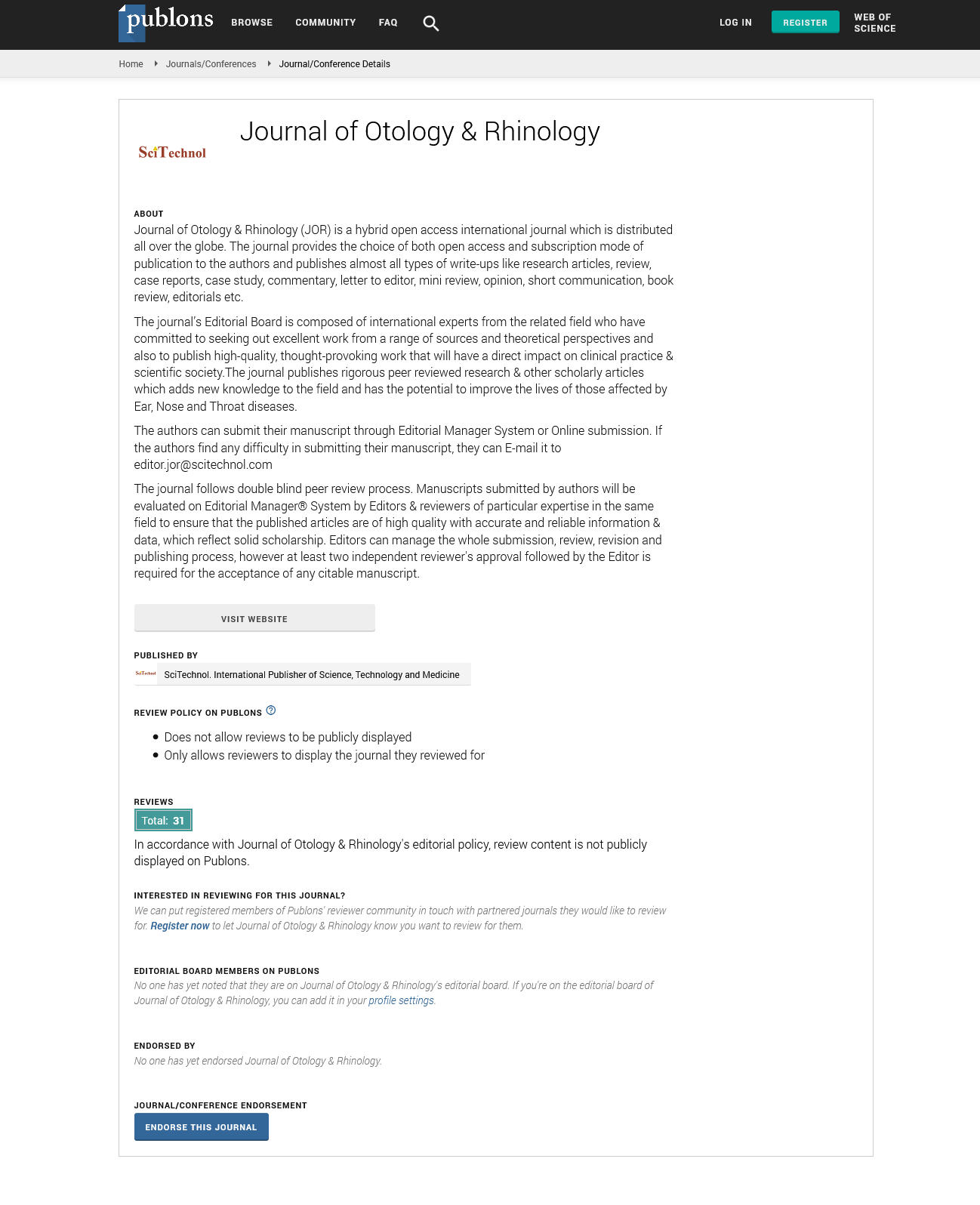The effect of sedating agents on drug-induced sleep endoscopy findings
Alonco Viana, Chen Zhao, Talita Rosa, Arnaldo Couto,Denise Duprat Neves, Maria Helena, de Araujo-Melo and Robson Capasso
Federal University of the State of Rio de Janeiro (UNIRIO), Brazil
Marcílio Dias Naval Hospital (HNMD), Brazil
Otolaryngology Head and Neck Surgery (OHNS)-Stanford University, USA
Department of Otorhinolaryngology, First Affi
: J Otol Rhinol
Abstract
Objective: Drug-induced sleep endoscopy (DISE) has gained interest for upper airway evaluation in patients with snoring and obstructive sleep apnea (OSA), and different drugs have been used to induce sedation. Nevertheless, all drugs have presented specific advantages and disadvantages with differential effects on respiratory physiology. This study evaluated and compared the effects of midazolam, propofol and dexmedetomidine on DISE findings, O2 nadir, and bispectral index (BIS) in the same sample of patients. Study Design: Case series prospective study. Methods: Consecutive patients who were elected to undergo surgery for OSA treatment and were intolerant to conservative therapies underwent DISE with propofol, dexmedetomidine, and midazolam between Jul’ 2015 and Jul’ 2016. Results: 52 patients were analysed and 43 (82.7%) were men. Agreement among drugs for both degree and patterns of obstruction was excellent at all sites (velum, oropharynx, and epiglottis) except for the tongue base. Dexmedetomidine had the least complete collapse sites and highest O2 nadir and was the only drug for which apnea severity and obstruction levels (upper, lower, or combined) were correlated. The variability among drug treatments for the bispectral (BIS) index was considerable, and propofol had the lowest variability and average value. Conclusion: Drug selection had a relevant influence in DISE findings. Compared with dexmedetomidine, midazolam and propofol presented higher incidence of tongue based collapse, lower O2 levels, and lower BIS index values. Propofol resulted in an O2 nadir that most resembled that observed during polysomnography. The BIS index variability differed among drugs, and its use was considered relevant for sedation orientation.
Biography
Alonco Viana holds a PhD from the Federal University of the State of Rio de Janeiro (UNIRIO, 2018). His research is in sleep medicine, and during 2017, he was Visiting Researcher at the Sleep Surgery Division at Stanford University. He tutors Medical Residents at the Otorhinolaryngology Department of Naval Hospital Marcílio Dias (HNMD) and directs the Interface Clinic. He has published papers in well-known journals, such as Journal of Clinical Sleep Medicine and European Archives of Oto- Rhino-Laryngology.
E-mail: aloncovianajr@gmail.com
 Spanish
Spanish  Chinese
Chinese  Russian
Russian  German
German  French
French  Japanese
Japanese  Portuguese
Portuguese  Hindi
Hindi 


